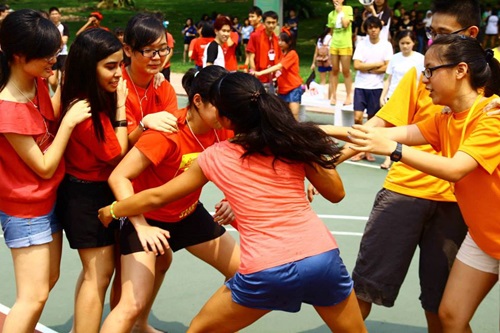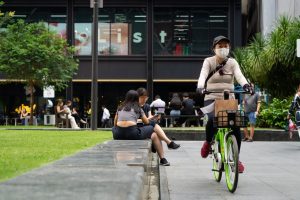With universities moving orientation camps online, many freshmen—also known freshies—may be disappointed to miss out on what’s often seen as an iconic university experience. After all, you can’t replicate the feeling of orientation games, pageants, or late night suppers via Zoom.
There may be a silver lining to all of this, however. Online orientation greatly lowers the chance of you being asked to re-enact a brother-sister rape scene. You are also less likely to encounter some of the racist and homophobic elements of orientation camps previous batches of students have.
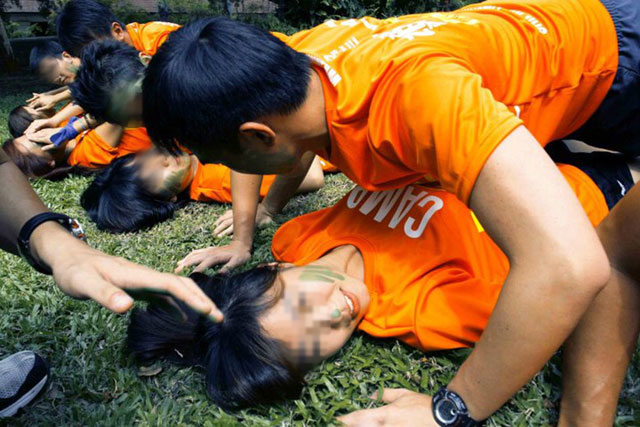
Take the “traffic light” game, an icebreaker where freshies are asked to go in a circle and share their relationship status with a colour. Red for attached, green for single, yellow for “it’s complicated.”
An additional rule that Chloe*, a Year One student at the National University of Singapore (NUS), did not expect to hear at their Tembusu College camp was, “Purple is for homosexual.”
The game is played at multiple universities here. Alexandra*, a student at Nanyang Technological University (NTU), said that the rule at her faculty orientation camp was, “If you’re not normal, say you’re black.”
“I had to ask my other friend, what do you mean by not normal?”
There are some signs that universities have tried to clamp down on this activity, albeit not very successfully. In an assessment NUS orientation group leaders were required to take, the activity is mentioned by name, as reported by The New Paper in 2018: “If a group of university orientation camp freshmen decide to play the “traffic light” game, where participants must declare their relationship status, what should the camp leader do?”
The scenario makes no mention of the rule that may apply to LGBTQ students.
Chloe shared their surprise that the game was played at Tembusu, as they had heard the residential college was “more inclusive”.
“If I went to a [non-Tembusu College] orientation I would probably not be surprised, because there’s so many horror stories around this already,” she tells me.
“But I thought Tembusu would be different.”
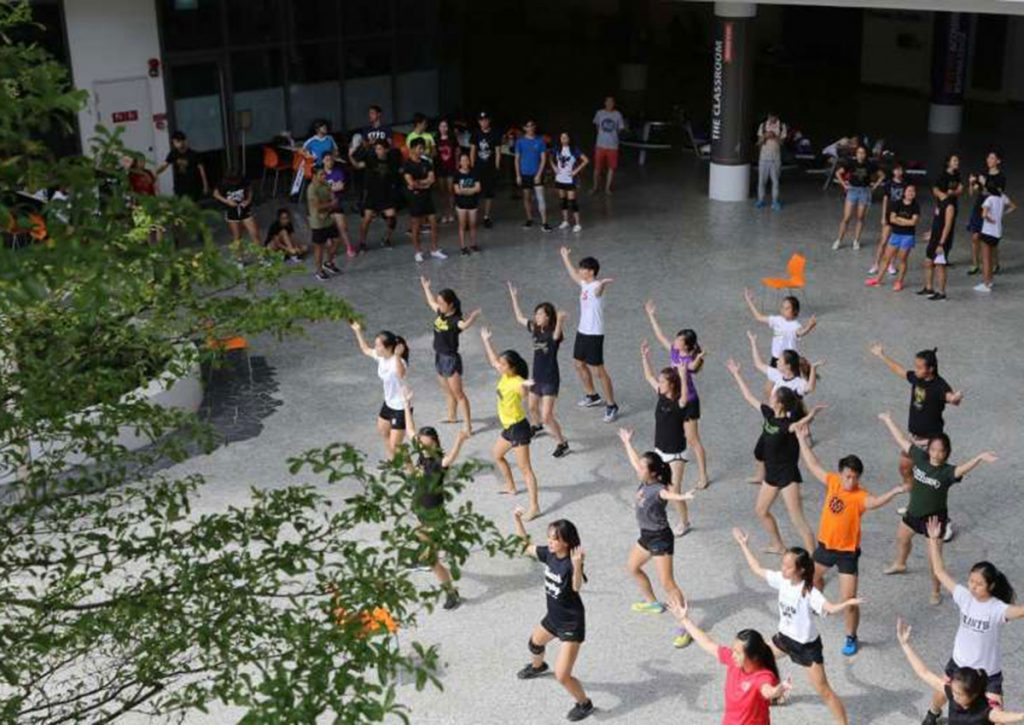
At one of my own freshman orientation camps last year, my group leaders taught us a cheer containing a racial slur that referenced individuals of Indian ethnicity.
When we came to that word, I thought I could feel a wave of discomfort ripple through the group. The group leaders were quick to remind us that we did not have to do the cheer if any of us were uncomfortable with it, something they did consistently before every camp activity.
We ended up not performing the cheer, but I was struck by one group leader’s defensive comment—that the slur in question was “just a word” Chinese people hd made up to make fun of the Indian community.
Her comment shocked me almost more than the cheer. Call me sheltered, but I had not known there were people my age who legitimately found it okay to use that term, and mere weeks after the Preetipls incident had sparked a polarised discussion about race and privilege in Singapore.
I wondered why the group leaders could not have omitted the cheer in the first place, instead of putting the onus on the freshies to voice their discomfort, where they may feel pressured to go with the flow.
Then there are the orientation camp activities that are less overtly discriminatory, but still serve to exclude minorities.
Bryan*, a Year 4 student at NTU, described his freshman orientation camp as a “culture shock” due to the cheers being predominantly in Mandarin and Hokkien, though only some of the Chinese freshies seemed perturbed by it.
“Most of them just accepted it as part of the majority.”
Since Bryan speaks Mandarin, the language barrier did not affect him as much as other non-Chinese students like Alexandra, who found it “very hard to memorise the lyrics and chant it along with the rest of the group.”
She also found it difficult to “gel with the group” as many students carried out conversations in Mandarin, to the exclusion of non-Chinese speakers.
When one of Alexandra’s groupmates noticed her struggling to follow along, she said he “basically just told me, to my face, that this is the norm, you kind of have to just suck it up. He didn’t use those words, but with his tone and everything, that’s what I got out of it.”
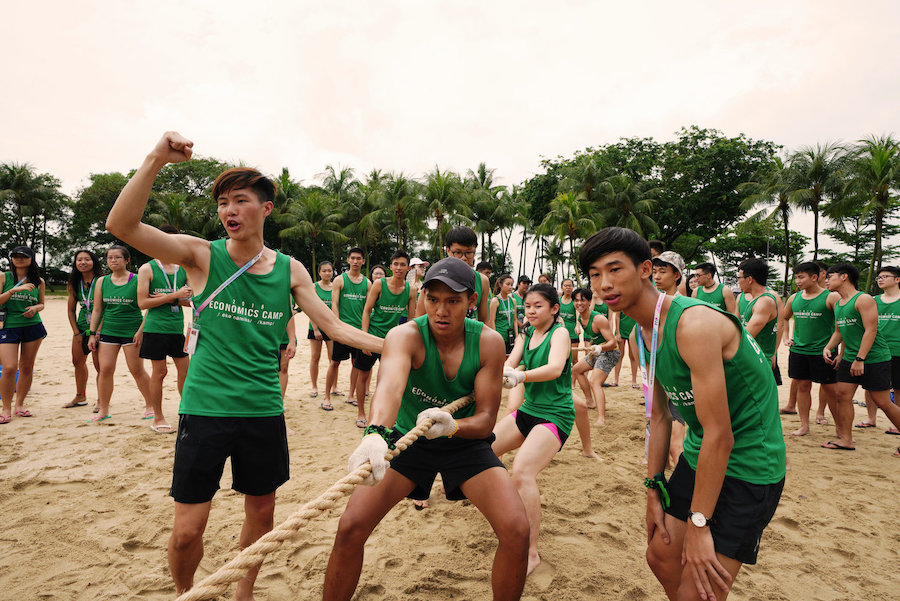
When I asked the students I interviewed for this article—all of whom opted to go by a pseudonym—if they had considered reporting the incidents to their universities, none of them said they had.
Some were unaware of how to do so, and most expressed doubt that it would lead to any substantial change. After all, as this reporter for The New Paper pointed out in 2016, sexualised university orientation games had made the news as far back as 2006, “Yet, a decade on, nothing has changed.”
Some students are still trying, though. As part of a student organisation that hosts orientation camps, Bryan and other students in NTU have been working to make orientation camps more inclusive.
Covid-19 may present another opportunity. As stories of inappropriate orientation games hit the headlines year after year, social media and local internet forums always seem to return to the argument that orientation camps are prone to adverse selection. The idea is that the juniors who enjoyed the problematic aspects of camp, or at least were less disturbed by it, are more likely to return as seniors the next year and repeat what they saw as freshmen.
It would then follow that this year’s virtual orientation, devoid of physical games or camp cheers, could help reset people’s expectations of what Orientation camps should be like.
Or at least, one can dream.
Seniors from higher batches tend to be involved in leadership roles at camps, and orientation games and cheers live on in collective memory and previous years’ camp proposals.
And while intervention by universities might put a stop to overt discrimination such as the use racial slurs, it does not address the discomfort minority students experience due to casually racist attitudes and microaggressions by other students. After all, it is not only at university orientation camps that we see Chinese people speaking in Mandarin when racial minorities are present.
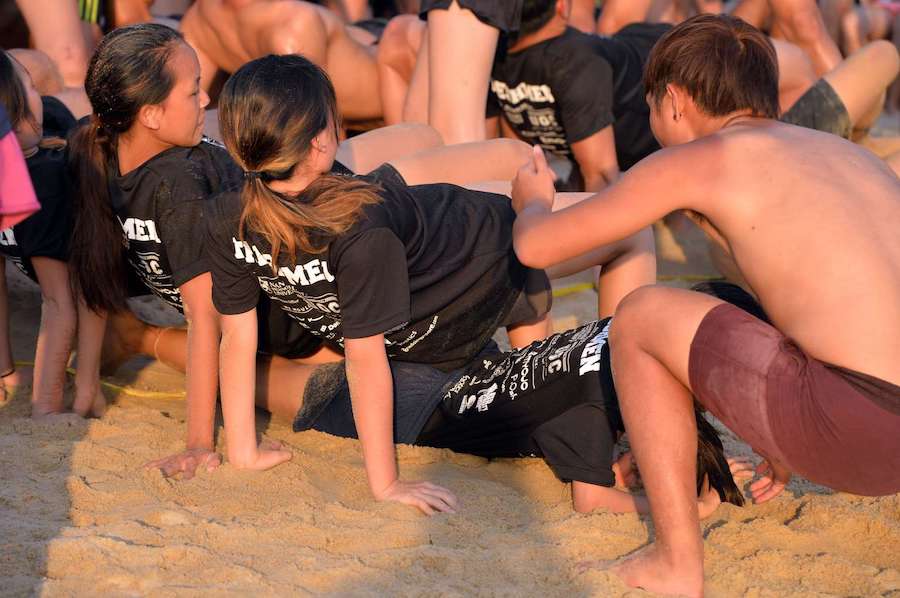
Students also don’t need an activity with inherently problematic elements to make things uncomfortable for minorities.
Chloe shared that one orientation game, Red-Black, was used to ask speculative questions about students’ sexual orientation and gender identity. In the game, freshies take turns to ask a question, and the group votes for a member of the group to answer by pointing at the person.
When her group leader asked a question related to gender identity during the game, Chloe felt that it was “like everyone is accusing you of being trans by pointing.”
“Anyone who looks or seems gay or trans, would be more likely to get pointed at. And it’s just a really nasty experience. I cannot imagine if I was actually trans, and that was the same scenario, how I would have felt.”
Making orientation inclusive to all students is not just a matter of removing certain inappropriate activities. It requires all of us to grapple with discriminatory attitudes across local campuses and in Singapore society in general.
It requires universities to take their policies on discrimination on the basis of traits like national origin, religion, ethnicity, gender—and in NTU’s case, sexual orientation—outlined in their Student Codes of Conduct seriously.
Until then, this year’s orientation camps will simply be, like so many things this year, the exception. And next year’s camp leaders will be back to asking freshies if they are red, yellow, green, or black.
*Pseudonyms used to protect privacy.

